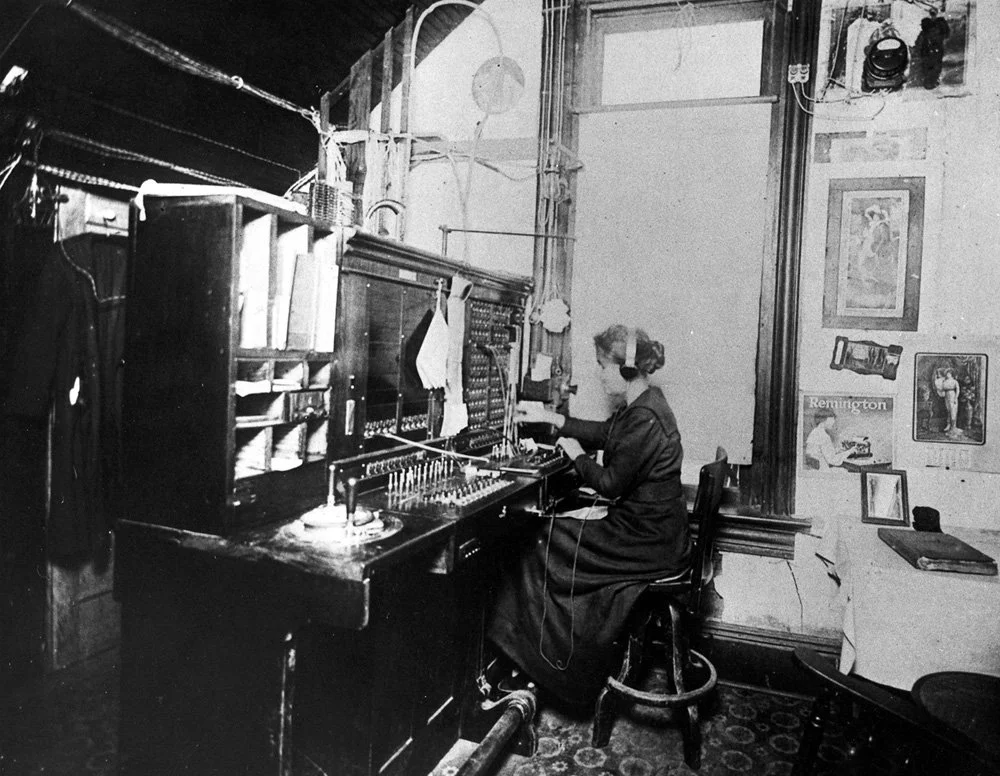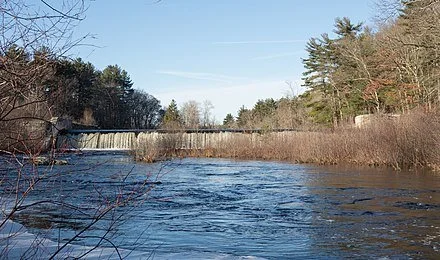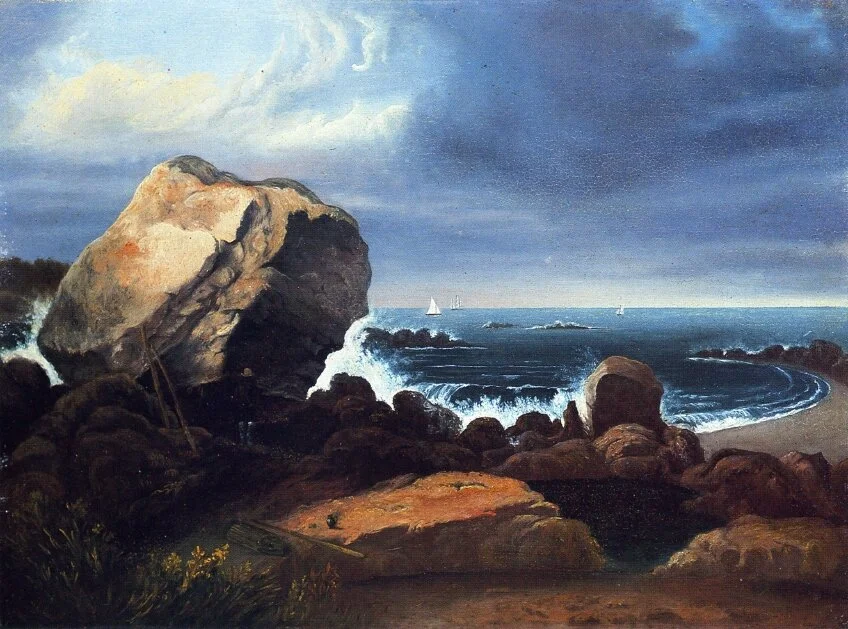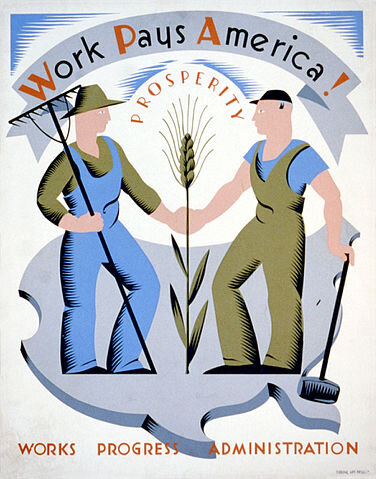
Plants as metaphor
“Journey “ (Japanese barberry) (detail work in process), by Boston-based artist Ann Wessmann, in her show “Cycle,’’ at Kingston Gallery, Boston, May 31-July 2.
The gallery says (this has been edited):
“In her studio practice, Ann Wessmann explores themes relating to time, memory, beauty and the ephemeral, with a focus on the strength and fragility of human beings and the natural world. Her most recent work pays tribute to trees, and the natural world by extension, by focusing on a horse chestnut tree at her childhood home, in Scituate, Mass., and the 170-foot-long hedge on two sides of the yard. This tree and hedge have been a part of her life for almost 70 years, going through their cycle of life as Wessmann goes through hers. While Wessmann no longer lives full time at her childhood home, she takes care of the yard year after year in the continuing seasonal cycle.
“Wessmann’s process is close observation and discovery, gathering and sorting various plant materials — leaves, flowers, twigs, nuts and hulls — that fall to the ground from the horse chestnut tree. These materials are essential to the life of the tree, but they have served their natural purpose and are generally overlooked and discarded by humans. Wessmann finds them beautiful and compelling. The thorny hedge, which she has struggled to maintain for many years, caught her attention in the past year, and the installation “Journey,’’ made with hedge clippings, for Wessmann became a metaphor for the times in which we live.”
Leaves and trunk of a horse chestnut tree. There are far fewer such trees these days.
— Photo by Alvesgaspar
The fruit of the Horse chestnut tree. They are not true nuts, but rather capsules.
— Photo by Solipsist
Llewellyn King: The thrill of getting a human on the line; the ‘service economy’ is a giant con
Telephone operator circa 1900.
WEST WARWICK, R.I.
Something wonderful happened to me this week. I spoke on the telephone to a human being at a credit-card company. Well, not immediately. That would be too much to expect.
I had to go through some of the hoops of the company’s automated phone system, beginning with (as it always seems to) “Listen carefully because our menu has changed.”
And, of course, I had to enter the card number, the PIN, the last four digits of my Social Security number and my maternal grandmother’s name, and learn that for quality purposes my rising frustration was being recorded.
I explained repeatedly to the recording what I needed. It wasn’t having any of it. If it was a sample of artificial intelligence, it was acting more like artificial stupidity.
Finally, the AI device decided that stupid people – me -- weren’t worthy of its recorded messages and transferred me to a “representative.” Banks, credit- card companies, and insurance offices don’t have people; they have “representatives.”
This representative was smiley-voiced and delightful. She also was human. After 20 awful minutes of hearing a recorded voice (“How can I help you? I did not get that. Push 7.”), here was someone who really wanted to help. Hallelujah!
Try talking to a live person, you will like it. It is wonderful. She told me about the weather where she was, San Antonio, and we had a whale of a time doing something that I forgot people can do with a telephone: small talk. In a trice, she took care of my need.
I am a regular panelist on a weekly Texas State University webinar. A super-smart man, a polymath, suggested there that my problem for not reveling in the new isolation -- working from home, talking to machines, sending texts, rather than speaking on the telephone and emailing -- may be generational. This I take to be a nice way of saying that if people had sell-by dates, I am past mine.
The implication is that there is a superior place where the digital people do digital things, and pity those of us who do not do digital things, like eat, drink, fall in love. No less a person than the actor Meryl Streep said, “Everything that truly makes us happy is quite simple: love, sex and food.” If she likes talking, too, I will award her my personal Oscar. Another endearing Meryl quote is, “Instant gratification is not fast enough,”
There is one place where computers have not infringed on the old way of doing things: The U.S. Department of State. I believe that they are still looking up things in giant ledgers and writing by hand on parchment.
I say this because if you, dear citizen, wish to get a passport renewed, the expedited route at your local passport office takes five to seven weeks. I am waiting in apprehension for my renewal, having paid $200 for the super-slow “expedited service.”
You can get a replacement Social Security card in moments, a driver’s license immediately, but the State Department will have none of that.
Oddly, passports are issued to all except those with unpaid child support or outstanding criminal warrants. There are more reasons to deny a driver’s license than a passport. But the wheels at the State Department grind extremely slowly, and time isn't an issue.
The service economy has been a giant con, dreamed up by MBAs to keep customers at a distance or to dehumanize them so that they forget that they pay for the abuse they receive, whether it is from the passport office or some financial institution.
I frequent one gas station, in Scituate, R.I., where they still pump your gas. Night and day, there are lines of motorists waiting for fill-ups, and to have a few cheery words with the pump jockeys. Human contact, real service, seems to be worth a few cents more a gallon.
Llewellyn King is executive producer and host of White House Chronicle, on PBS. His email is llewellynking1@gmail.com, and he’s based in Rhode Island and Washington, D.C.
Hope Dam on the Pawtuxet River in Scituate
Flood voyeurism
Glades Road in a frequently flooded section of Minot, a neighborhood of Scituate, Mass. “The Glades” is a summer compound of Massachusetts’s historically famous Adams family. Hit the links below to see the area in a more exciting situation.
Adapted from Robert Whitcomb’s “Digital Diary,’’ in GoLocal24.com
When I was kid, we much enjoyed the coastal flooding that accompanied Nor’easters in Cohasset, my hometown on Massachusetts Bay. Sometimes the water would cover some stretches of streets from which you couldn’t see the ocean because of the woods in the way. Sometimes we’d get to row on these roads. Cheap thrills indeed.
But a better show was in nearby Scituate, where a densely packed community on a point, with both summer and year-round houses, is massively flooded every few years. The houses shouldn’t be there, but federal flood insurance, which started in 1968, sustains this seeming idiocy even as rising sea level makes places such as Scituate more vulnerable.
After I got my driver’s license, I’d go to Scituate alone or with friends to watch the show and take some pictures.
Hit these links to get a sense of what we’d see:
Distraction via exploration
“Scituate Beach, Massachusetts,’’ byThomas Doughty, 1837
From Robert Whitcomb’s “Digital Diary,’’ in GoLocal24.com
When things in the world in general and/or in your own little world in particular seem almost intolerably tense, you can’t beat wandering around in nature without an itinerary for relief. I remember that fondly from my boyhood in a small, still partly rural, town on Massachusetts Bay. Alone, or with a pal or two, I’d go “exploring’’. And it was a good place to explore.
There were beaches, more pebbles than sand, with rocky headlands and innumerable sea birds, some of which would attack if you approached their nests. There were shark’s eggs to pick up, along with lovely sea glass (this was before the explosion of plastic pollution), and horseshoe crab shells amidst the seaweed dumped on the beach at the high-tide mark. (There were also tin cans to shoot at with BB guns.)
After northeast storms, we’d look for small boats that might have been tossed ashore.
Nearby were bullrush forests along the marshes, through which we’d make trails leading to little “rooms” we’d create. We’d use rowboats to explore the tidal rivers through the marshes, with their often sulfurous smells.
Sometimes in midwinter the more brackish and less salty marsh streams would freeze up and we’d do our exploring on skates.
Inland, small streams beckoned us to find their sources, and we’d check out a nearby farm, fragrant in certain weather with the aroma of manure, where we would sometimes intentionally irritate the bulls. There were rock-topped mini-mountains and tall oak trees to climb and abandoned houses to trespass in. (See poem fragment above.) And everywhere pleasing smells, such as of cedar trees, of which we had a lot, and flowering trees in May, of wet, newly cut grass and of rotting apples on the ground in the fall.
And the sights, smells and sounds could vary much from day to day, with the sharpest changes in early spring. Every day’s light was different.
What a miraculous world!
— Photo by Stefan-Xp
While this winter has generally been milder than usual, it looks like we won’t be getting the “January Thaw” – that sweet stretch of days with temps in the 50s that we often get at this time of year in New England, giving us a tempting taste of spring. A January Thaw would have been particularly appreciated by COVID-desperate restaurant owners because they could more comfortably serve customers outdoors.
Meanwhile, while most (?) New Englanders like mild winters, that our winters are getting warmer and shorter is a bad sign for the world, showing that man-fueled global warming is speeding up.
Llewellyn King: To revive America, fix the gig economy and bring back the WPA
McCoy Stadium, in Pawtucket, R.I., was a WPA project….
…and so was this field House and pump station in Scituate, Mass.
The assumption is that we’ll return to work when COVID-19 is contained, or we have adequate vaccines to deal with it.
That assumption is wrong. For many millions, maybe tens of millions, there will be no work to return to.
At root is a belief that the United States -- and much of the world -- will spring back as it did after the 2008 recession: battered but intact.
Fact is, we won’t. Many of today’s jobs won’t exist anymore. Many small businesses will simply, as the old phrase says, go to the wall. And large ones will be forced to downsize, abandoning marginal endeavors.
When we think of small businesses, we think of franchised shops or restaurants and manufacturers that sell through giants like Amazon and Walmart. But the shrinkage certainly goes further and deeper.
Retailing across the board is in trouble, from the big-box chains to the mom-and-pop clothing stores. The big retailers were reeling well before the coronavirus crisis. Neiman Marcus, an iconic luxury retailer, has filed for bankruptcy. All are hurt, some so much so – especially malls -- that they may be looking to a bleak future.
The supply chain will drive some companies out of business. Small manufacturers may find that their raw material suppliers are no longer there or that the supply chain has collapsed – for example, the clothing manufacturer who can’t get cloth from Italy, dye from Japan or fastenings from China. Over the years, supply chains have become notoriously tight as efficiency has become a business byword.
Some will adapt, some won’t be able to do so. A record 26.5 million Americans have sought unemployment benefits over the past five weeks. Official unemployment numbers have always been on the low side as there’s no way of counting those who’ve given up, those who work in the gray economy, and those who for other reasons, like fear of officialdom or lack of computer skills, haven’t applied for unemployment benefits.
To deal with this situation the government will have to be nimble and imaginative. The idea that the economy will bounce back in a classic V-shape is likely to prove illusory.
The natural response will be for more government handouts. But that won’t solve the systemic problem and will introduce a problem of its own: The dole will build up dependence.
I see two solutions, both of which will require political imagination and fortitude. First, boost the gig economy (contract and casual work) and provide gig workers with the basic structure that formal workers enjoy: Social Security, collective health insurance, unemployment insurance and workers’ compensation. The gig worker, whether cutting lawns, creating Web sites, or driving for a ride-sharing company, should be brought into the established employment fold; they’re employed but differently.
Second, a new Works Progress Administration (WPA) should be created using government and private funding and concentrating on the infrastructure. The WPA, created by President Franklin D. Roosevelt in 1935, ended up employing 8.5 million Americans, out of a total population of 127.3 million, in projects ranging from mural painting to bridge building. Its impact for good was enormous. It fed the hungry with dignity, not the soup kitchen and bread line, and gave America a gift that has kept on giving to this day.
Jarrod Hazelton, a Rhode Island-based economist who’s researched the WPA, says the agency gave us 280,000 miles of repaired roads, almost 30,000 new and repaired bridges, 600 new airports, thousands of new schools, innumerable arts programs, and 24 million planted trees. It also enabled workers to acquire skills and escape the dead-end jobs they’d lost. It was one of the most successful public-private programs in all of history.
As the sea levels rise and the climate deteriorates, we’ll need a WPA, tied in with the Army Corps of Engineers, to help the nation flourish in the decades of challenge ahead. The original was created by FDR with a simple executive order.
Llewellyn King is executive producer and host of White House Chronicle, on PBS. His e-mail address is llewellynking1@gmail.com and he’s based in Rhode Island and Washington, D.C.
Big public projects
From Robert Whitcomb’s “Digital Diary,’’ in GoLocal24.com
Publicly funded projects such as that in and around the Worcester Red Sox’s pending Polar Park Stadium, involving a taxpayer commitment of $132 million, up $9.4 million from the previous estimate, tend to create metastasizing tax breaks. Consider that Worcester City Manager Edward Augustus now wants additional tax breaks for private developers in the WooSox district, in this latest case for a 15-year tax break for a building near the ballpark’s left field and for a residential building, and a 10-year tax break for an office, labs and retail complex.
Maybe these projects will indirectly create long-term tax-revenue streams for the city in the form of more economic development and new property-tax revenue nearby -- and maybe not. Depends a lot on how the economic cycle goes in this new decade. In any case, taxpayers should remember that the taxes the developers aren’t paying other taxpayers will have to offset.
All this is part of the vision for a total of $125 million in private development next to Polar Park.
Stadium-construction projects usually turn out well for rich team owners and associated developers, but generally not – at least economically -- for the general taxpaying public. That isn’t to say that having a baseball team in town won’t make plenty of people feel better, at least for a while, especially if the team wins more than it loses and spawns stars that head for the Major Leagues.]
For more information, please hit these links:
https://www.wbjournal.com/article/worcester-seeking-more-tax-breaks-for-woosox-related-development
https://www.golocalprov.com/news/leading-stadium-expert-blasts-worcester-for-polar-park-cost-overruns
xxx
Field house and pump station built by the New Deal’s Works Progress Administration in Scituate, Mass., in 1938
But public projects can be immensely useful and profitable for the general public. Consider the bridges, roads, tunnels schools, post offices, parks, etc., built in the New Deal – a lot of them still serving the public. They were, in general, very well built. But America’s public infrastructure has been falling apart for decades, damaging our quality of life and making America less economically competitive. When he was running for president, Trump promised to start rebuilding our infrastructure. Instead, he pushed for big tax cuts for the rich.
A presidential candidate who can credibly promise to lead that rebuilding, with many well-paying jobs included, would have a very strong issue in this year’s election.















